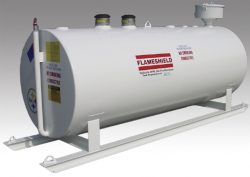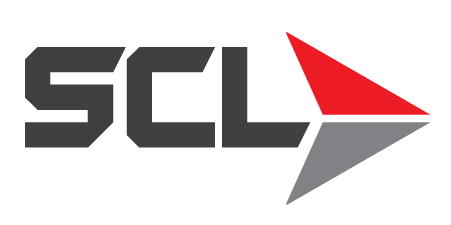Are Your Empty Skid Tanks Really Empty?

HMR Regulations You Should Know to Avoid Hefty (and Often Imposed) Fines
For our customers in construction and agriculture, skid tanks are often used for their convenience in providing on-site fuel that keeps operations running efficiently. Unfortunately, they can also be the source of exorbitant fines due to violations in federal hazardous materials regulations, especially when it comes time to transport them off site.
Skid tanks are often delivered to farms and construction sites empty on a flatbed truck, and then filled in place. Once empty, customers and many providers often mistakenly assume they can be transported away in the same manner.
Regardless of whether you believe tanks to be “empty,” if this is your practice, you may be unknowingly violating federal regulations and leaving yourself and your business open to fines of up to $55,000.
According to federal Hazardous Materials Regulations (HMR), if tanks have not been properly cleaned and purged, even if they contain only gasoline vapor, they are not “empty.” The remaining fuel-residue mixture inside is classified as hazardous material, making it subject to HRM standards regarding transportation.
The exception to this rule is if the tanks contain diesel; unlike gas, diesel may be transported by drivers possessing only a CDL license. Placarding is also only required if diesel tanks are transported in bulk (exceeding 119 gallons).
Confusion often arises, however, when skid tanks contain gas, which is classified as a hazardous material.
Avoiding Hefty Fines that Affect Your Bottom Line
According to HMR, a person who violates a requirement applicable to the transportation of hazardous materials – including gasoline – is liable for a civil penalty of no more than $55,000 and no less than $250 for each violation.
The maximum civil penalty is $110,000 if the violation results in death, serious illness or severe injury to any person or substantial destruction of property, and a minimum $495 civil penalty if that violation relates to HAZMAT training, according to an article published in the Petroleum Marketers Association of America Journal.
“Transporting empty skid tanks from sites using flatbed trucks, without properly cleaning and purging those tanks beforehand, is a common practice, honestly. And it’s not because of a blatant disregard of regulations; it’s because people simply aren’t aware of the details of those regulations,” said SCL General Manager Travis Becktel. “When fines as high as $110,000 are on the line, we want to make sure our customers remove any potential risk to their employees and their bottom lines.”
In order to avoid fines, companies can do one of two things:
• clean and purge skid tanks of vapors on site before transporting them, or
• adhere to proper DOT requirements when removing them from sites.
Proper Transportation from Sites
If companies elect to delay proper cleaning and purging of tanks before transporting them, there are a few essential regulations they must adhere to in order to avoid hefty fines and, worse, out of service orders.
These include:
Placards – Unless skid tanks are cleaned and purged, they must be placarded on all four sides. The only exception is when gross aggregate capacity of the tank is less than 1,000 gallons, in which case tanks may be placarded on only two sides.
Shipping Papers – Skid tanks containing vapors or residue must be accompanied by shipping papers that comply with U.S. DOT HAZMAT regulations, the same format as papers used with fuel transported by cargo tank truck or transport. Make sure the “quantity” field on your paperwork states “residue” if there is no usable material left in the tank(s). If there’s any additional material left inside the tank, it must be designated in gallons.
Driver Qualifications – Only drivers with a current CDL and HAZMAT endorsement should transfer skid tanks that contain any fuel or residue.
“Once you’ve used a skid tank, unless you want to invest in cleaning and purging those skid tanks on your site, it’s best to operate under the assumption they still contain hazardous material,” Becktel said. “We’ve seen too many customers get hit with hefty fines when they haven’t.”
Contact an SCL Consultant today
In a wide range of industrial sectors, SCL is committed to being the number one logistics and solutions provider for the products that protect and optimize the machines that keep our country moving. We pride ourselves on remaining at the forefront of industry trends and technological innovations, and as the market continues to evolve, we are committed to providing extensive product and industry knowledge and total performance satisfaction for our customers. For more information on how we can assist you in choosing optimal products at a competitive price, as well as services including on-site fueling, contact an SCL expert today.
